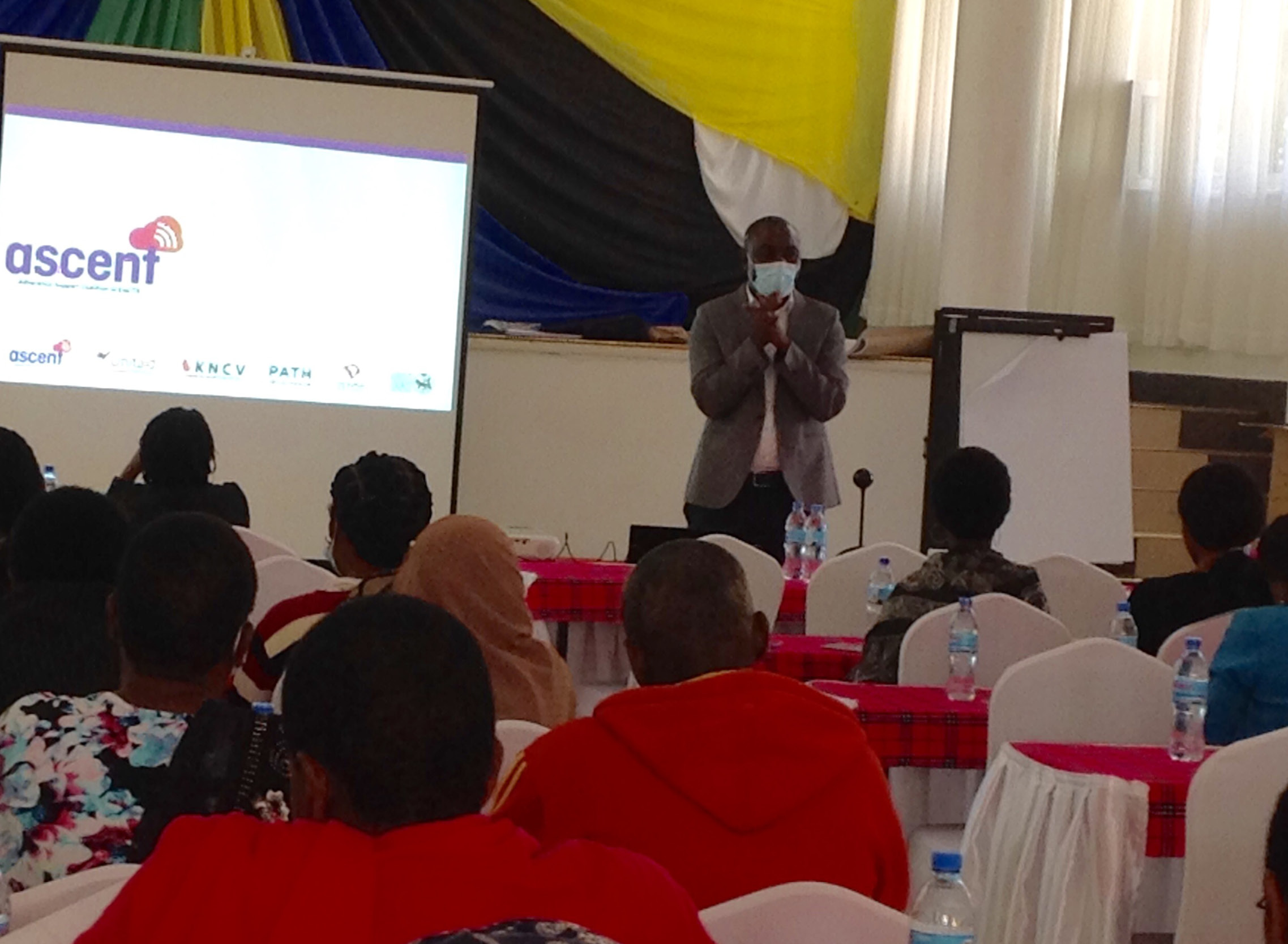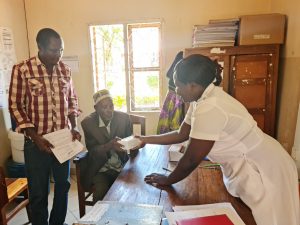The ASCENT Tanzania team conducted a randomization ceremony to assign health facilities to intervention arms and standard of care study arms, this is an important milestone that kicks off the ASCENT project in Tanzania. The ASCENT project aims to help tuberculosis (TB) patients to successfully complete their course of treatment, using digital adherence technologies (DATs) and data-driven support interventions, utilizing tools as smart pill boxes.
The randomization event included the random allocation of facilities to either intervention or standard of care (control) arms, and further allocation of the facilities in the intervention arm to one of the DATs to be used in the project – either the smart pillbox or the medication sticker.
The randomization event was immediately followed by a 1.5-day training of health care workers (HCW) from the facilities that will be working with the smart pillbox of the intervention arm. HCWs will get a notification every time one of their patients opens the box, so the HWC’s can keep track of their adherence. They are also trained on ethics and how to provide accurate information on the details of the intervention, research and use of patient data. The training is one of the key steps for enrolling patients into the ASCENT project.
Shortly after the randomization event, five facilities selected from each of the regions were visited for health facility installation. This means the run-in phase can officially start.
Who were there?
To minimize travel during this period, the events were simultaneously held in Arusha and Mwanza Regions. Over 200 government staff from different levels of the ministry participated in the events. Participants include: Tanzanian Ministry of Health (MOH), NTLP (including the deputy manager, the ASCENT project Principal Investigator), representatives from the 4 ASCENT regions (Arusha, Manyara, Mwanza and Geita), regional medical officers (RMOs), district medical officers (DMOs), regional TB & leprosy coordinators (RTLCs) and district TB & leprosy coordinators.
Next steps
The ASCENT Tanzania project is now in the run-in phase. Which means they can start enrolling patients in the program. During this period, the processes and logistics will be fine-tuned. The next step of the project is research, which will include the use of the Everwell hub (adherence platform), and full deployment of the DATs – smart pill boxes, medication stickers and possibly video supported treatment (VST)– to the respective facilities in the intervention arm.
Healthcare providers from intervention facilities will be re-trained on how to use the 3 different types of DATs and enroll patients on the Everwell hub. Based on patient dosing data on the hub provide differentiated care to patients to support their TB medication adherence.
The Unitaid funded and supported ASCENT project is led by KNCV Tuberculosis Foundation in consortium with The Aurum Institute, London School of Hygiene and Tropical Medicine, and PATH.

